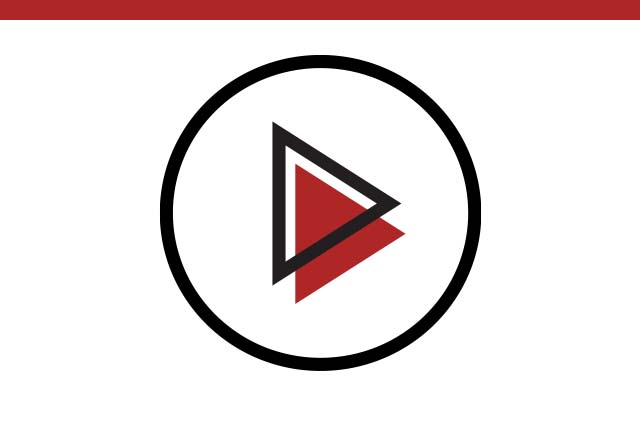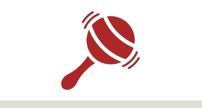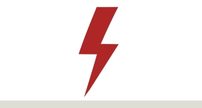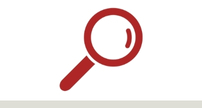Myoclonus & Startle
Clinical Overview
Myoclonus is characterized by sudden, brief, involuntary jerks of a muscle or group of muscles. It can be either a positive jerk caused by a muscular contraction, or a negative jerk caused by an interruption of muscle activity. The classification of myoclonus can be made anatomical, clinical or etiological; however, the anatomical origin of jerks is most commonly used in clinical practice. With help of electrophysiological examination using electromyography in combination with electro-encephalography, the jerks can be subdivided in cortical – which is the most common –subcortical (or non-cortical) including brainstem, spinal, and peripheral myoclonus. The clinical presentation of myoclonus is of added value in the differentiation of these subtypes. Cortical myoclonus present mainly in distal limbs and the face are stimulus-sensitive, opposed to subcortical myoclonus showing mostly proximal and axial jerks.
A wide variety of both acquired and genetic causes are associated with myoclonus, making the diagnostic process of finding the etiology challenging. Both the anatomical substrate and the additional accompanying clinical features provide important information regarding the underlying disease and help guide towards a more specific differential diagnosis.
View complete description
Acquired causes
In cortical and subcortical myoclonus, an acquired cause is common and characterized by an acute or subacute onset and/or fast progression of disease. Medication or toxic agents induced myoclonus should be considered first, especially if the jerky movements started more or less acutely at the start of treatment, because cessation or detoxification will ameliorate the symptoms. Subsequently, routine laboratory tests can detect etiologies such as homeostatic imbalance, organ failure and infections. Immune-mediated disorders (e.g. anti-NMDAR encephalitis, stiff person syndrome (SPS), opsoclonus-myoclonus syndromes (OMS)) become more likely one systemic signs of infection are present. Some of these disorders are treatable and, therefore, early recognition is critical. A brain MRI is a helpful next step in identifying the underlying disease, both acquired and genetic causes.
In spinal and peripheral myoclonus, signs of muscle denervation or structural lesions must be assessed with help of electrophysiological testing or imaging. Propriospinal myoclonus, closely resembling spinal myoclonus and characterized by generalized jerks of the trunk and abdominal muscles with a variable duration from 100 – 1000ms, is usually a functional movement disorder.
Genetic causes
Only cortical and subcortical myoclonus are associated with genetic disorders and in most cases next generation sequencing (NGS) is indicated after ruling out an acquired cause. However, keep in mind the mitochondrial disorders (e.g. MERRF) and neurodegenerative disorders (e.g. Alzheimer’s disease) for mitochondrial defects are not identified with NGS and in only a small percentage of neurodegenerative disorders the underlying defect is known.
Compared to an acquired cause, a genetically determined myoclonus syndrome is suspected in cases with an early onset and a slower progression of disease. In the majority of cases, one of two clinical syndromes is seen: cortical myoclonus in combination with ataxia (e.g. progressive myoclonus epilepsy / progressive myoclonus ataxia) or subcortical myoclonus in combination with dystonia. Almost all genetic disorders present with an additional movement disorder. Exceptions include familial cortical myoclonus with epilepsy (BAFME or FCMTE), some epileptic encephalopathies and hyperekplexia. Unfortunately, the majority of the genetic defects causing genetically determined myoclonus syndromes remain unknown.
Identifying the anatomical substrate is not only helpful in the diagnostic process, but also has consequences for the treatment strategy. Levetiracetam, valproic acid and clonazepam are generally considered to be the first choices of treatment in cortical myoclonus, whereas only clonazepam is the first choice in subcortical, spinal and peripheral myoclonus.
Startle syndromes
Startle is a stereotypical response to a sudden and unexpected stimulus. In most instances, the stimulus is acoustic, but other modalities such as tactile, visual, or vestibular are also effective stimuli. Exaggerated startle is a feature of various neurologic and psychiatric conditions. These startle syndromes are a diverse and heterogeneous group of syndromes enfolding three categories: hyperekplexia, stimulus-induced disorders and neuropsychiatric disorders.
Hyperekplexia is a rare genetic clinical syndrome that is characterized by brisk and generalized startle in response to (most often acoustic or tactile) stimulation. The medical triad includes 1) generalized stiffness at birth (slowly diminishing in the first year of life), 2) excessive startle reflexes and 3) short-lasting generalized stiffness following startle resulting in violent falls. The startle response originates from the brainstem and is treated with clonazepam. On examination, at all ages, there is an exaggerated head-retraction reflex. The most common gene affected concerns GLRA1, responsible for 80% of all hyperekplexia pedigrees.
Stimulus induced disorders show excessive responses due to a startling stimulus. These disorders are either non-epileptic (e.g. paroxysmal kinesigenic dyskinesias, episodic ataxia, cataplexy) or epileptic (e.g. reflex epilepsy) and usually start in childhood. The third group, the neuropsychiatric startle syndromes often develop later in life and include startle-induced tics, functional startle syndromes and anxiety disorders (e.g. posttraumatic stress syndrome), and the culture-specific syndromes such as Latah and the Jumping Frenchmen of Maine.
Contributed by Marcelo Merello, MD
Director, Neuroscience Department
Head Movement Disorders Section
Institute for Neurological Research Raul Carrea (FLENI)
Buenos Aires, Argentina
2019 updates contributed by:
Sterre van der Veen, MD, PhD Candidate,
Movement Disorders Groningen, under Marina de Koning-Tijssen, MD, PhD
Head of Movement Disorders, Department of Neurology, Movement disorders
Groningen, Netherlands
View Myocolonus & Startle: |
Key Recommendations
Diagnosis
Nomenclature of Genetically Determined Myoclonus Syndromes: Recommendations of the MDS Task Force
Information
Instructional Videos: How Do I?
From the Movement Disorders Clinical Practice journal.

Video Case Library
Browse an archive of nearly 2,000 case videos and other multimedia, including various presentations of myoclonus and startle. ✪ MEMBERS ONLY
Latest Articles and Media
Discover the latest coverage, analysis, and expert commentary about myoclonus and startle.
![]()
Benign idiopathic myoclonus: A new clinical entity
- Web article
- Myoclonus
![]()
Prime editing - A future therapy for cortical myoclonus?
- Podcast
- Gene Therapies
- Myoclonus
![]()
Myoclonus dystonia: Motor & non-motor symptoms and the effect of DBS
- Podcast
- Deep brain stimulation
- Myoclonus
![]()
Is propriospinal myoclonus a functional movement disorder?
- Podcast
- Myoclonus
![]()
Differential diagnosis of myoclonus
- Podcast
- Myoclonus
![]()
Electrophysiology with a focus on cortical myoclonus
- Podcast
- Myoclonus
![]()
Myoclonus new classification & treatment
- Podcast
- Myoclonus
![]()
Diagnostic Utility of Clinical Neurophysiology in Jerky Movement Disorders: A Review from the MDS Clinical Neurophysiology Study Group
- Published paper
- Myoclonus
- Neuroimaging
![]()
Myoclonus is telling how our brain works (2020)
- Video
- Myoclonus
![]()
Nomenclature of Genetically Determined Myoclonus Syndromes: Recommendations of the International Parkinson and Movement Disorder Society Task Force
- Published paper
- Genetics
- Myoclonus
Education

Fundamentals: Approach to Myoclonus
Understand the classification and electrophysiology of myoclonus, including the newest genetic nomenclature and practical approaches to diagnosis and management.
Top Myoclonus Courses















